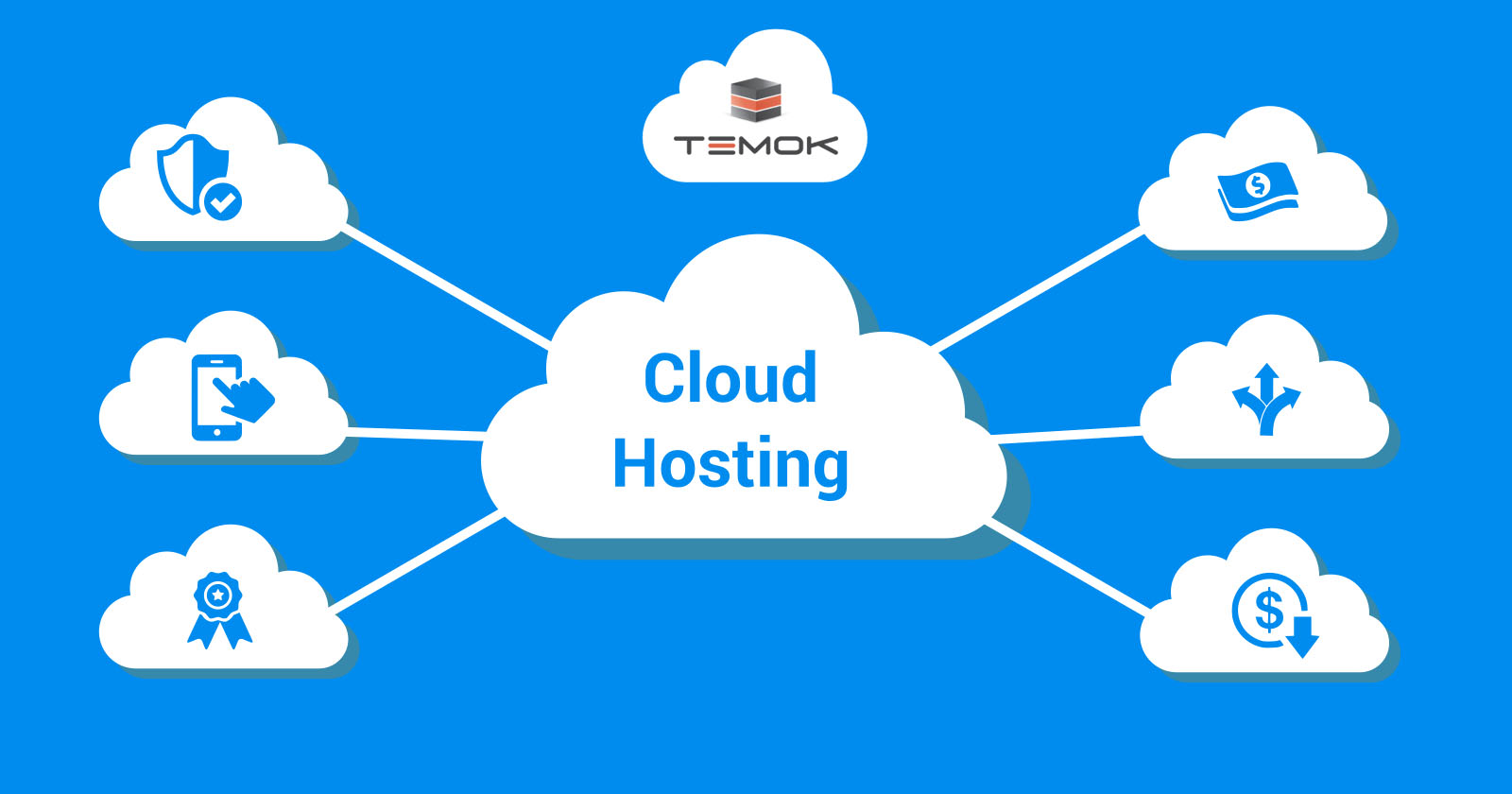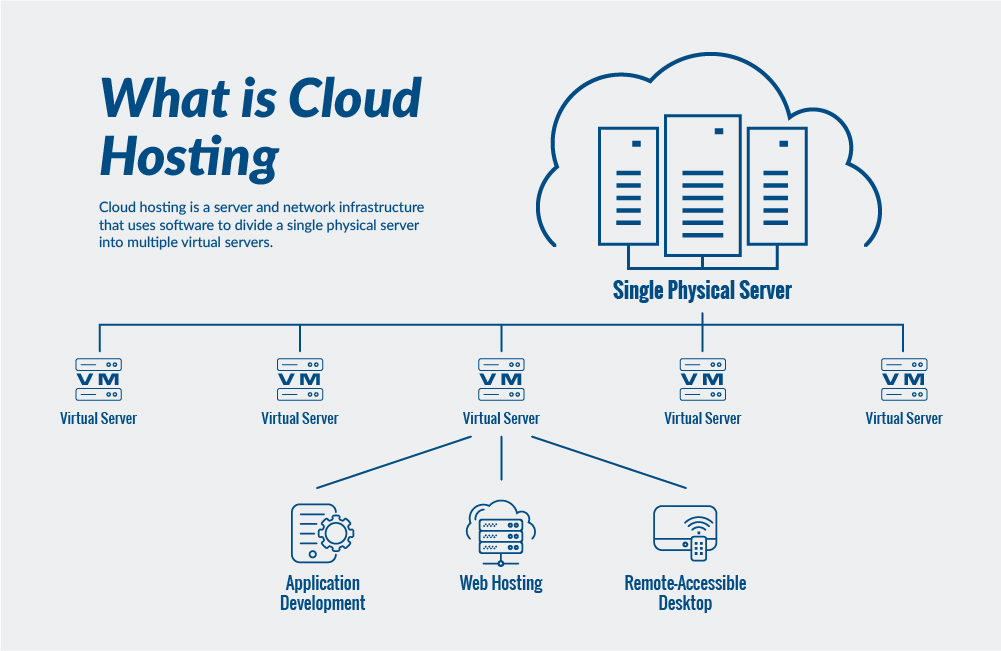In recent years, cloud computing has revolutionized the way businesses and individuals access and manage their data and applications. One of the key components of cloud computing is cloud hosting. But what is cloud hosting, and how does it work? In this article, uley.info will delve into the basics of cloud hosting, exploring its definition, underlying technology, and the benefits it offers to businesses and individuals.
What Is Cloud Hosting? Exploring the Basics and Benefits
- Understanding Cloud Hosting:
Cloud hosting refers to the practice of hosting websites, applications, and data on virtual servers that are accessed through the internet. Unlike traditional hosting methods that rely on physical servers, cloud hosting utilizes a network of interconnected virtual servers located in data centers around the world. These servers work together to provide reliable and scalable hosting services. - The Technology Behind Cloud Hosting:
What is cloud hosting relies on virtualization technology, which allows physical servers to be divided into multiple virtual servers. Each virtual server operates independently, with its own operating system and resources. This virtualization enables efficient resource allocation, flexibility, and high availability. - Key Features of Cloud Hosting:
Cloud hosting offers several important features that set it apart from traditional hosting methods:
a. Scalability: One of the primary benefits of what is cloud hosting is its ability to scale resources up or down based on demand. Businesses can easily adjust their hosting resources to accommodate traffic spikes or fluctuations in demand, ensuring optimal performance and cost-efficiency.
b. Reliability and Redundancy: what is cloud hosting utilizes multiple servers across different data centers, providing redundancy and ensuring that websites and applications remain accessible even in the event of hardware failures or outages. This increases reliability and minimizes downtime.
c. Resource Efficiency: what is cloud hosting allows for efficient resource allocation, as virtual servers can dynamically utilize available resources based on demand. This ensures that resources are used optimally, reducing costs and improving overall performance.
d. Flexibility and Customization: what is cloud hosting offers flexibility in terms of server configurations, operating systems, and software applications. Users can easily customize their hosting environment to meet their specific requirements and preferences.
- Benefits of knowing what is cloud hosting:
Cloud hosting offers numerous benefits to businesses and individuals:
a. Cost Savings: Cloud hosting eliminates the need for upfront investments in physical infrastructure and allows businesses to pay only for the resources they use. This pay-as-you-go model reduces capital expenditure and minimizes ongoing maintenance costs.
b. Scalability and Elasticity: what is cloud hosting provides the ability to scale resources up or down rapidly based on demand. This scalability ensures that businesses can handle traffic spikes and accommodate growth without experiencing performance issues.
c. High Performance and Reliability: Cloud hosting leverages the distributed nature of virtual servers to deliver high performance and reliability. With redundant infrastructure and load balancing mechanisms, websites and applications hosted in the cloud can handle heavy traffic loads efficiently.
d. Enhanced Security: Cloud hosting providers invest heavily in security measures, including encryption, firewalls, and regular backups to protect data from unauthorized access, data loss, and breaches. This level of security is often superior to what many businesses can achieve on their own.
e. Accessibility and Collaboration: Cloud hosting enables easy access to data and applications from anywhere with an internet connection. This promotes remote work and collaboration among teams, enhancing productivity and flexibility.
- Use Cases for Cloud Hosting:
Cloud hosting is suitable for a wide range of applications, including:
a. Website Hosting: Cloud hosting offers a reliable and scalable platform for hosting websites of all sizes, from personal blogs to enterprise-level e-commerce sites.
b. Application Hosting: Cloud hosting provides a robust infrastructure for hosting web applications, software-as-a-service (SaaS) platforms, and other cloud-based applications.
c. Data Storage and Backup: what is cloud hosting allows businesses to store and back up their data securely in the cloud, eliminating the need for physical storage devices and providing disaster recovery capabilities.
d. Development and Testing Environments: Cloud hosting offers developers and software development teams a flexible and cost-effective environment for creating, testing, and deploying applications.
Conclusion
What is cloud hosting? It has revolutionized the hosting industry, offering businesses and individuals scalable, reliable, and cost-effective hosting solutions. By leveraging virtualization technology and distributed infrastructure, cloud hosting provides flexibility, high performance, and enhanced security. Whether it is website hosting, application hosting, data storage, or development environments, the benefits of cloud hosting make it a compelling choice for organizations seeking a modern and efficient hosting solution. Embracing cloud hosting can empower businesses to focus on their core operations while leaving the hosting infrastructure to the experts.





